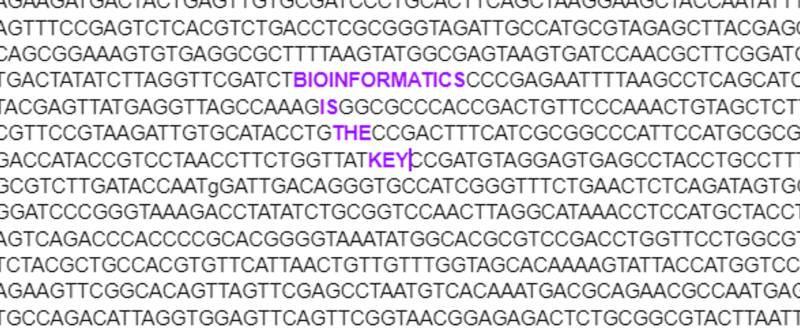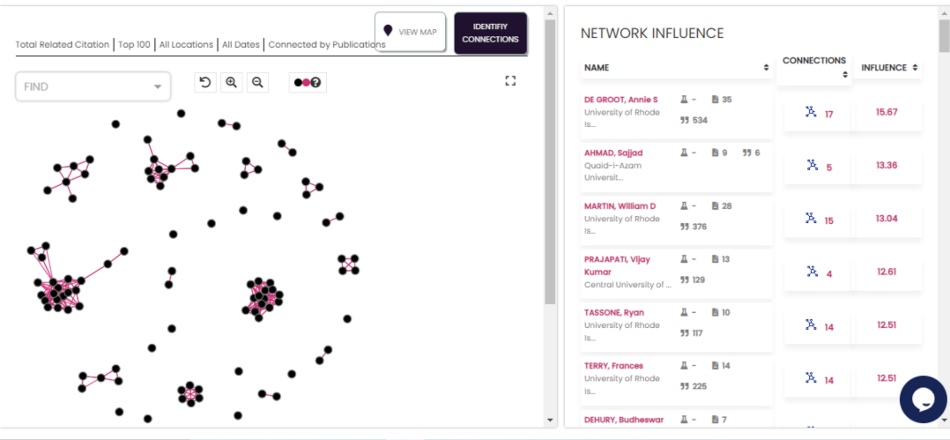

Freelance Life Sciences journalist supporting technological and scientific solutions through content creation and international expansion.
Bioinformaticians are scientists who love to be in front of a computer screen, studying patterns of nucleic acid sequences or proteins, trying to unveil the codes of life using maths, statistics, and applying algorithms to explore questions and find answers in massive datasets, tasks impossible to solve just with traditional biological methods.
The discipline took its first steps in the 60´s, but its progress is accelerating. Scientific companies are demanding bioinformaticians to navigate through the human genome, identifying new bioactive compounds in nature, improving crop production, or offering solutions to climate change. This interdisciplinary field is pushing scientific investigations and becoming the connecting thread of many lab projects too. It is therefore that all global market reports match in their predictions of annual growth rates above 10%, and life sciences areas and PhD programs are increasingly sharing common grounds with computer science.
Everything suggests that the bioinformatics business will keep spreading across the world. There is a huge need to integrate biological datasets, and startups offering services of nucleic acid or protein sequencing or new platforms facilitating the work of labs in the cloud are emerging.
The way researchers do science is being transformed with bioinformatics. To move forward in the frontiers of medicine and biotechnology it is not enough anymore with lab experiments and detailed observations, as scientists used to do in the past. The best bioinformaticians’ minds require a combination of accuracy and creativity, a fusion of fundamental biology and coding dexterity. Through advanced analytical methods and complex biological representations, bioinformaticians are leading the way to the future of medicine. Currently how to make the right questions in multiple omics databases is becoming essential.
Boosted by its fundamental role in the understanding of COVID-19, new computational methods focusing on the immune system are being developed too. In this way, the discipline of immunoinformatics is contributing for a better comprehension of some infectious diseases, immune system reactions and improvements in vaccine design. There is also a rising interest in immune-related therapies in cancer, where new computational methods may set the pace of next breakthroughs.
Discover who are the scientists and countries at the forefront of immunoinformatics with connections view on Insciter.com

You can discover other terms associated with immunoinformatics such as “epitope-based vaccine”, which can lead you to key investigations related to SARS-Cov-2 or other viruses.
Bioinformatics providers are growing and pointing to specific fields. Take a look in the following insights of the bioinformatics market, and after you can jump into more details and the scientists behind using Insciter search:
In the field of proteomics, the US company Somalogic, recently announced a strategic partnership with Illumina, combining their proteomics data with Illumina´s Next Generation Sequencing platforms thanks to the applications of new bioinformatics toolsets.
Epigenetics bioinformatics providers, such as the Scottish Fios Genomics, are expected to grow during this year as scientists are paying more attention to the mechanisms of activation and deactivation that control gene expression and their role in several diseases.
The microbiome technology company Eagle Genomics is partnering with Earlham Institute (EI), a bioscience research institution, to provide tools required to explore microbiome data.
Beyond human health, other areas such as agriculture are going to be profoundly impacted by bioinformatics. A few months ago, BASF Venture Capital and Amathaon Capital invested in the bioinformatics company Computomics, which can make predictive breeding technology and can offer recommendations about crop suitability for future climates.
Regarding the cloud based-business landscape for scientific discovery, analysts note how the cloud bioinformatics pipelines will facilitate workflows to make R&D easier and faster. Following this path, Curio Genomics and Daicel Arbor Biosciences announced the launch of the cloud-based bioinformatics platform myCurio™, with the idea to bring new capabilities to plant genomics researchers.
It is also worth noting that the software company Insightful Science, announced at the beginning of the year the acquisition of Omiq Inc, a company specialised in data science SaaS solutions for high dimensional flow cytometry and quantitative multi-omics data.
Another meaningful example of how bioinformatics may develop in the following years is the Danish PipeBio, the company offers bioinformatics cloud services for antibody / peptide screening and drug development. The software is based on visual features to reach more scientists without coding skills and with the goal to evolve to a full biological drug development platform.
© 2021 Insciter. All rights reserved. Insciter is a technology application which serves as a search engine and data provider
Trading name of Layer IV Limited. Registered in England and Wales No. 11737675